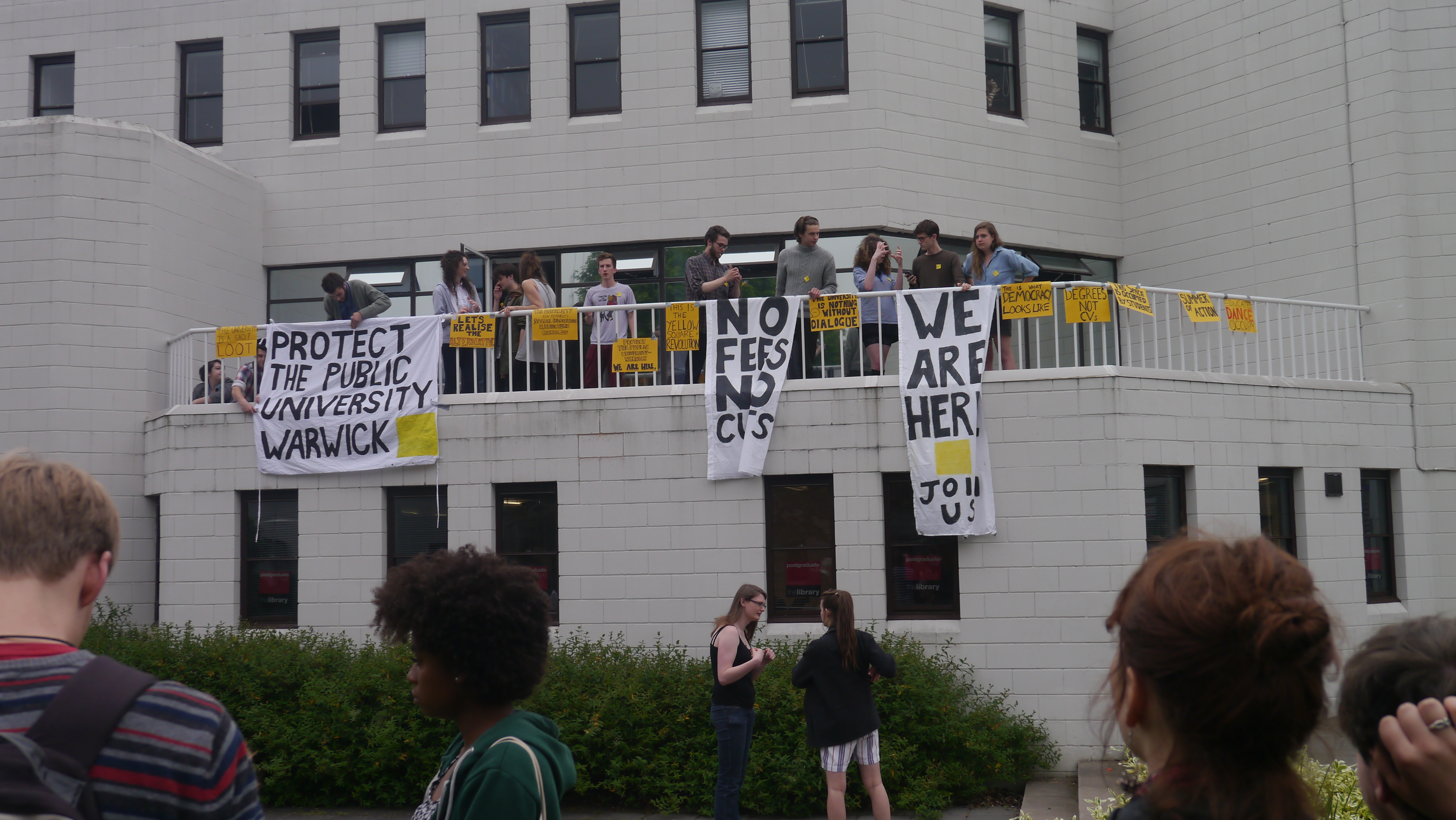Occupying achieves nothing
The idea of ‘occupying’ is in fashion: two years ago – occupation of the ACCR, in protest at tuition fee rises; last year, Occupy St. Paul’s, Occupy Wallstreet and – of course- Occupy Warwick. On Campus this year the movement might have lapsed were it not for some 20 odd occupying the Senate room in University House, to begin a conversation about changes to education policy created in Westminster. Last year I found the occupy movement amusing.
As I crossed the occupation of the green space on central Campus I thought the irony of sitting in purpose-bought tents, complaining about marketisation and drinking coffee from Costa was lost on some.
This year I’m annoyed. It’s not that I don’t agree with the political perspective – I think private schools – hell, even grammar schools- promote social inequality. It’s wrong that by age seven those who are in the bottom quartile of parental income but the top quartile of IQ will have been overtaken academically by those in the top quartile of parental income but the bottom quartile of IQ. Because that is where these problems start. By the time young people get to higher education, the massive social gap already exists. That’s where we should focus our efforts.
Contrary to the claims on the Protect the Public University (PPU)’s site, the detrimental effect of the rise in fees isn’t ‘demonstrated by falling applications from disadvantaged backgrounds’. The biggest drop is from the middle classes- UCAS figures show applications from the wealthiest fifth of the country dropped by 3,000: the poorest fifth of England saw a fall of around 280 students. Last year Labour MP Glenda Jackson told me that it was patronising for people to assume that working class children were held back, ‘it assumes we are incapable of managing our own finances: we are not’. I’m starting to see her point.
This injustice angers me but I was not prepared to sit in a tent last year missing out on the university education I’m privileged enough to receive. Nor will it prompt me to sit in a room at my university, miles away from Westminster, or the local MP who could raise these issues.
Because I don’t think sitting in a room in Senate House actually achieves anything other than feeding the ego, or the social conscience. Occupying a room won’t achieve anything. If these protestors care so much about the marketisation of universities, then why do they not promote projects such as Warwick Inspire?
Such projects entail speaking to local school children about university life, mentoring those unlikely to consider higher education. Or going back to their own schools telling students why they should consider applying for university, and explaining how they can get funding. Perhaps channeling time into such activities rather than sitting in tents or council chambers -which to date have achieved nothing- might actually provoke change. Even channeling energy into the Students’ Union’s meetings – which often fail to meet quorum – would be more effective.
There is also of course the issue of Nigel Thrift’s pay rise. Contrary to some claims, it’s not one of the highest salaries in the country (the base salary is actually slightly below average pay for a Russell Group head), and in fact two thirds of university leaders received a pay rise this year. Yes it’s wrong that one person can be paid so much money, and certainly the cuts to staff are terrible and need to be reconsidered. But Nigel Thrift doesn’t control those decisions, Warwick’s Remuneration Committee does. What Professor Thrift does generate is a huge amount of money for the University- money that has gone into new facilities for students and staff. The institution’s turnover is currently £440 million: running an organisation with 5,000 staff and 23,000 students is no mean task.
The fact is that Nigel Thrift is a very good vice-chancellor, and competitive salaries help retain very good staff. It’s precisely because of the bad economic climate the PPU cite that universities need to keep hold of those who will generate the most money for their institutions. It’s wrong, but that’s not Mr Thrift’s fault; this anger should be directed towards the government, or the Remuneration Committee, or the head of the Russell group. I’d hazard a guess that Professor Thrift does care about these things and he uses his position to do something about it. Arguing that Mr Thrift would need to give up his salary to show he cared is a bit like arguing that the protestors should give up their university places for people who are less privileged but more deserving.
It’s great that students care so much about social inequality. I just wish they would do something about it rather than protest, which is as ‘tokenistic’ as the actions which they accuse our university of. Sitting in a room is easy. Actually doing something to create change is less so but more worthwhile.

Comments (3)
“Yes it’s wrong that one person can be paid so much money, and certainly the cuts to staff are terrible and need to be reconsidered. But Nigel Thrift doesn’t control those decisions, Warwick’s Remuneration Committee does.”
Nigel Thrift is one of four members of the Renumeration Committee, he decides his own pay.
http://www2.warwick.ac.uk/services/gov/atoz/rc/
“As I crossed the occupation of the green space on central Campus I
thought the irony of sitting in purpose-bought tents, complaining about
marketisation and drinking coffee from Costa was lost on some.”
Try watching this: http://www.youtube.com/watch?v=8WvAkhW-XNI